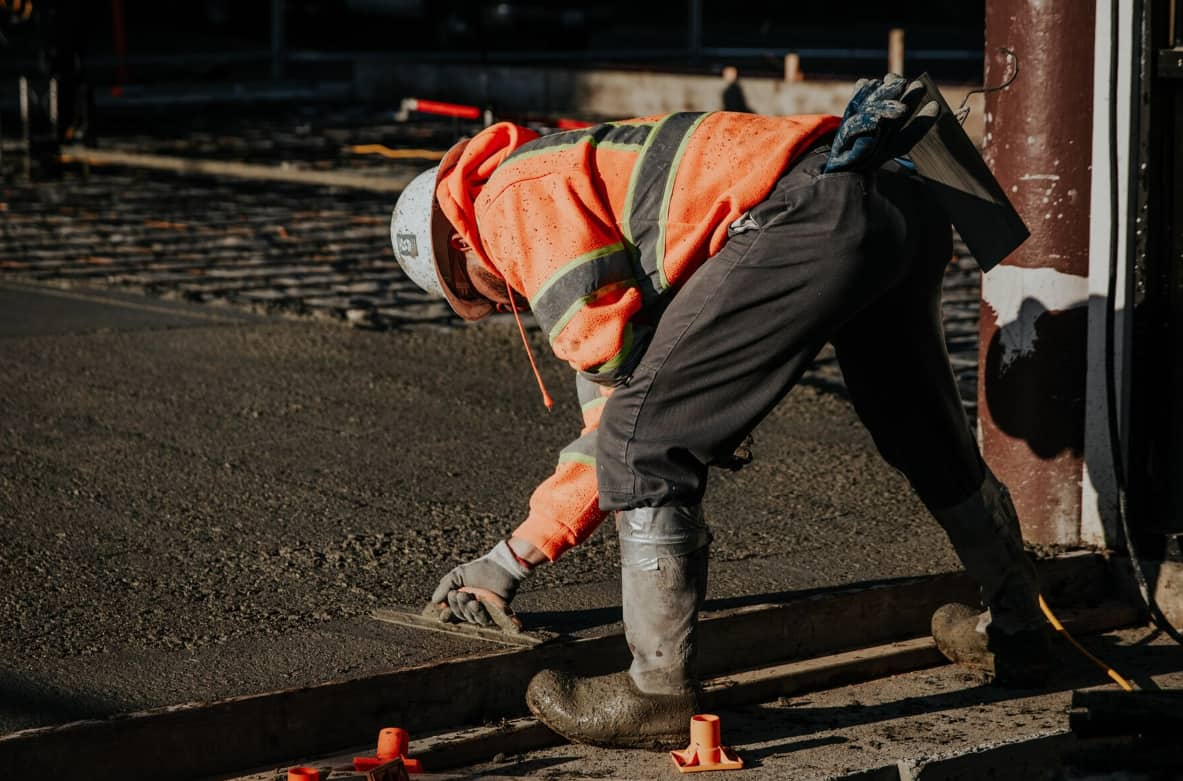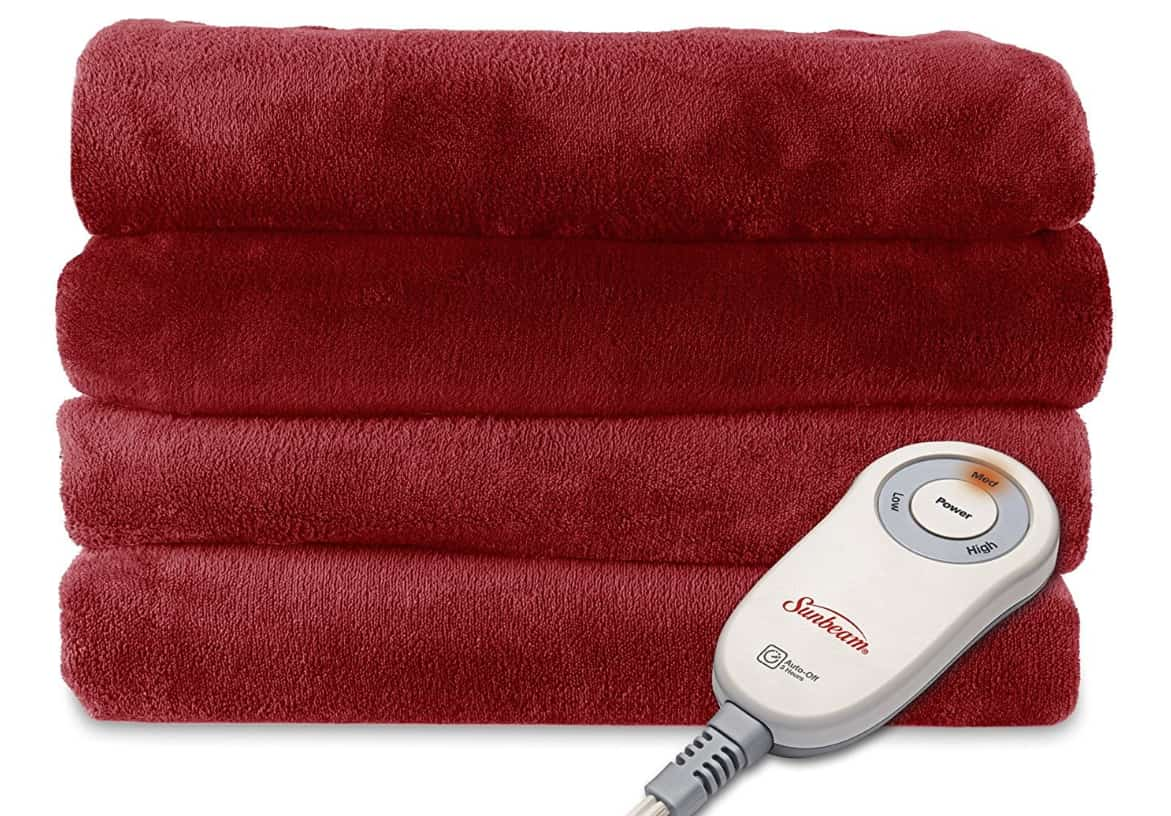Thinking about a new driveway, patio, or walkway? Concrete is a popular choice for many home projects.
It’s strong, lasts a long time, and doesn’t cost too much. But how much does concrete cost per yard?
This guide will break it all down for you. We’ll look at the average prices, what affects those prices, and how to figure out how much concrete you need.
We’ll also cover different types of concrete, the good things about using it, and whether you should pour it yourself or hire a pro.
How Much Does Concrete Cost Per Yard?

By the end, you’ll know everything you need to about concrete costs. You’ll be ready to start your project with confidence. Let’s dive in!
Quick Answer: How Much Does Concrete Cost per Yard?
On average, concrete costs between $100 and $200 per cubic yard. Most people pay around $128 per cubic yard.
But remember, the final price can change based on things like where you live and what type of concrete you need.
How to Calculate Concrete Cost per Yard?
Before you can figure out the cost, you need to know how much concrete you need. Here’s how to do that:
- Measure the area you want to cover (length x width).
- Decide how thick you want the concrete to be.
- Multiply the area by the thickness to get cubic feet.
- Divide by 27 to convert cubic feet to cubic yards.
Let’s say you want a patio that’s 10 feet by 10 feet, and you want the concrete to be 4 inches thick:
- Area = 10 ft x 10 ft = 100 square feet
- Thickness = 4 inches = 0.33 feet
- Volume = 100 sq ft x 0.33 ft = 33 cubic feet
- Cubic yards = 33 cubic feet ÷ 27 = 1.22 cubic yards
Always round up and add about 10% extra. In this case, you’d want to order 1.5 cubic yards of concrete.
Factors That Affect Concrete Cost per Yard
The price of concrete can change based on several things. Let’s look at each one:
-
1. Concrete Type
There are different types of concrete for different jobs. Some cost more than others. We’ll talk more about types later.
-
2. PSI Rating
PSI stands for “pounds per square inch.” It tells you how strong the concrete is. Higher PSI means stronger concrete, but it also costs more. Here’s a quick look:
- 3,000 PSI concrete: $100 to $115 per cubic yard
- 3,500 PSI concrete: $110 to $123 per cubic yard
- 4,000 PSI concrete: $118 to $130 per cubic yard
- 4,500 PSI concrete: $128 to $138 per cubic yard
- 5,000 PSI concrete: $135 to $138 per cubic yard
-
3. Delivery Distance
The farther the concrete has to travel, the more it costs. Many companies charge extra for distances over 20 miles.
-
4. Delivery Day
Weekend or holiday deliveries often cost more. You might pay an extra $8 per cubic yard.
-
5. Labor
If you’re hiring someone to pour the concrete, that adds to the cost. Labor usually costs $8 to $18 per square foot.
-
6. Geographic Location
Where you live affects the price. Concrete costs more in cold places because they have to heat the water. It’s also pricier on islands because of shipping.
Additional Costs and Considerations
When you’re budgeting for concrete, there are some extra costs to think about:
-
1. Short-Load Fees
If you need less than a full truckload of concrete (usually about 10 cubic yards), you might have to pay a short-load fee. This can be $40 to $60 extra per cubic yard.
-
2. Concrete Installation
Before pouring concrete, there’s prep work to do. This can include:
- Excavation: $50 to $200 per cubic yard
- Grading: About $60 per hour
- Building forms: $2 to $6 per square foot
- Adding a subbase: $10 to $20 per cubic yard
- Reinforcement: $0.15 to $0.50 per square foot
-
3. Concrete Removal
If you need to remove old concrete first, that costs extra. Expect to pay $2 to $6 per square foot for removal.
-
4. Landscaping and Customizations
After the concrete is poured, you might want to add some finishing touches. Here are some common additions and their costs:
- Sod: $0.87 to $1.76 per square foot
- Walkway: $10 to $20 per square foot
- Trees or shrubs: $30 to $3,000
- Mulch: $40 to $115 per cubic yard
- Flower beds: $650 to $3,000
- Retaining wall: $4,030 to $8,720
- Gazebo: $5,370 to $9,030
You can also customize the concrete itself with staining or stamping. This can cost $2 to $18 per square foot.
Types of Concrete
There are four main types of concrete. Each has its price and best use:
-
1. Ready-Mix Concrete
This is concrete that’s mixed at a plant and delivered ready to pour. It costs $100 to $200 per cubic yard. It’s good for big jobs, but you have to use it quickly once it arrives.
-
2. Pre-Mix Concrete
This comes in bags you can buy at a store. It’s good for small jobs. Prices range from $4.50 to $27 per bag. Here’s how many bags you need for one cubic yard:
- 50-pound bags: 70 bags
- 60-pound bags: 60 bags
- 70-pound bags: 50 bags
- 80-pound bags: 45 bags
- 95-pound bags: 40 bags
-
3. Reinforced Concrete
This is concrete with wire mesh or rebar added for extra strength. The reinforcement costs $0.15 to $0.50 per square foot on top of the concrete price.
4. Precast Concrete
This concrete is poured into molds at a factory and then delivered to your site. It’s often more expensive upfront but can save money in the long run.
Benefits of Installing Concrete
Concrete is popular for good reasons. Here are some of its benefits:
-
1. Low Up-Front Cost
Concrete is usually cheaper than other materials like paving stones.
-
2. Widely Available
The materials to make concrete are easy to find almost anywhere.
-
3. Low Maintenance and Long-Lasting
Concrete doesn’t need much care and can last for decades.
-
4. Strong
Concrete can hold a lot of weight, making it good for driveways and foundations.
-
5. Eco-Friendly
Concrete can be recycled when it’s no longer needed.
-
6. Customizable
You can color or stamp concrete to make it look like other materials.
Concrete Installation: DIY vs. Hiring a Professional
You might be tempted to pour concrete yourself to save money. But it’s not an easy job. Here’s why you might want to hire a pro:
- They have the right tools
- They know how much concrete you need
- They can pour and finish the concrete quickly
- They can ensure the concrete is level and smooth
- They can add reinforcement if needed
- They know how to prevent cracks and other problems
Unless you’re very handy and the job is small, it’s usually best to hire a professional.
How to Save Money on Concrete Cost Per Yard?
Even if you hire a pro, there are ways to keep costs down:
- Get quotes from several companies
- Buy in bulk if you have multiple projects
- Use local suppliers to reduce delivery costs
- Do some of the prep work yourself
- Consider using recycled concrete if appropriate
Questions to Ask About Concrete Installation
When you’re hiring someone to pour concrete, ask these questions:
- Are you licensed and insured?
- Can you show me examples of your work?
- How long will the job take?
- Do I need any permits?
- What kind of warranty do you offer?
- Who will be doing the work?
- How do you prepare the site?
- What’s included in your price?
FAQs About Concrete Costs
Here are some common questions about buying concrete:
- Q: Where can I buy concrete?
A: You can buy bags at a hardware store for small jobs. For big jobs, order from a concrete company.
- Q: How much concrete fits in a truck?
A: A full concrete truck usually holds 8 to 10 cubic yards.
- Q: What’s the cheapest way to buy concrete?
A: Buying bags and mixing them yourself is the cheapest, but only works for small jobs.
- Q: What’s the minimum amount of concrete I can have delivered?
A: Usually 1 cubic yard, but you’ll pay extra fees for small amounts.
- Q: How do I order concrete?
A: Contact a concrete company directly. Tell them what you’re building and where.
- Q: How long does it take to pour concrete?
A: The actual pouring usually takes about an hour. The concrete starts to set after that.
More Useful Guides to Check Out:
- Why Are My Home Lights Flickering
- Can Two People Eat At Texas Roadhouse For $50
- MyFordBenefits – Login, Retirees Benefits, & More
- What Does Urge Delivery Mean on Shein
Conclusion:
Concrete is a versatile, durable material for many home projects.
While the cost can vary, understanding what affects the price can help you budget better.
Remember, the cheapest option isn’t always the best. Consider the long-term benefits of using quality concrete and professional installation.
Whether you’re planning a new driveway, patio, or any other concrete project, this guide should help you understand the costs involved.
With this knowledge, you can make informed decisions and create a beautiful, long-lasting addition to your home.



